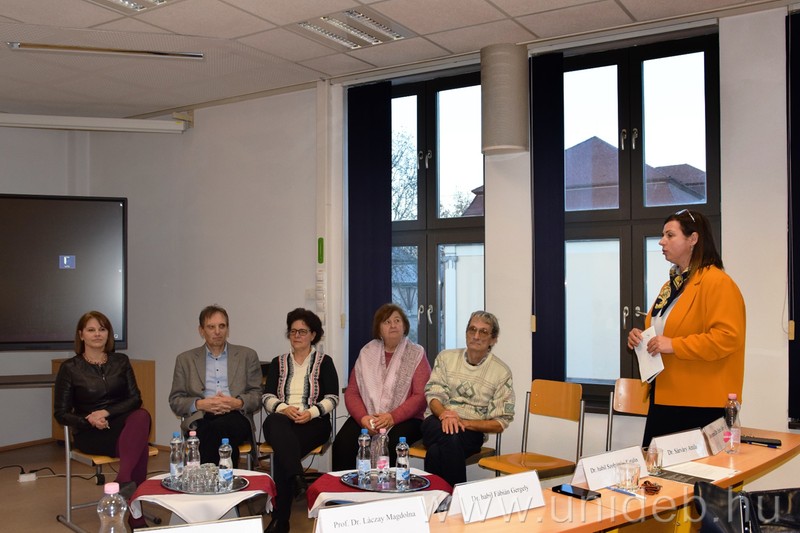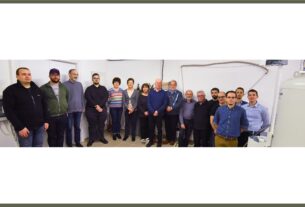At the closing event of the Hungarian Science Festival, a series of events that included four independent programs, professional presentations and round-table discussions reported on social challenges, research results, current affairs in the elderly and the labor market, as well as the most important scientific issues of health care to the Faculty of Health Sciences of the University of Debrecen professionals in Nyíregyháza.
At the professional event Science: Answers to Regional Challenges, members of the region’s scientific community and students of the faculty were able to learn about the demographic and labor market situation typical of the region, the characteristics that are most characteristic of the population’s access to jobs, culture, and physical and mental health.
Anita Rusinné Fedor, the general and scientific deputy dean of the Faculty of Health Sciences of the University of Debrecen, the chairperson of the Szabolcs-Szatmár-Bereg County Committee, Lifestyle and Health Research Interdisciplinary Work Committee of the Hungarian Academy of Sciences, highlighted that the population decline can be seen in Hungary and in the Szabolcs region as well and that the level of education is also high attention should be paid, as this can reduce labor market inequalities, which currently strengthen the insecurity characteristic of the precariat.
Although the number of births in our country has increased in the recent period, it is still significantly less than optimal. There are more and more elderly residents, all of which has an impact on the labor market, so, for example, the demand for nursing and care services has also increased. In Szabolcs-Szatmár-Bereg county, the population indicators show a better situation than in other Hungarian regions, but the population data here also indicate a decrease. In order for this to stop, the number of children born annually should rise to 30,000 by 2030, and emigration should also decrease, and it should also be ensured that career and having children are not mutually exclusive. If no changes are made, the aging index in Hungary is expected to reach two hundred percent by 2050
– said the deputy dean.
Magdolna Láczay, professor emeritus of the faculty, spoke about the fact that people have to cope with an economic and mental crisis.
In the past decades, the goal was to create a knowledge-based society, but a few years ago this stopped, the negative effect of which in Szabolcs-Szatmár-Bereg county further deepened the degree of detachment compared to the national one. In relation to the regional effects, the changes in the education system, the effectiveness of health prevention, health preservation, the development of digital competence, and the increase in the number of Hungarian workers moving abroad must also be examined
– said the professor emeritus.
István Szabó, the vice-chairman of the Szabolcs-Szatmár-Bereg county assembly, emphasized that it is a primary and distinguished strategic task for the municipality to influence social processes in a favorable way, and for this, the professional opinion of the scientific community is very necessary.
At the event, Gergely Fábián, head of the Department of Social Sciences and Social Work of the DE Faculty of Health Sciences, gave a presentation on the challenges of the labor market and changes in the income situation, Katalin Szoboszlai, associate professor of the Department of Social Sciences and Social Work, gave a presentation on the possibilities of courses in need of development, followed by Attila Sárváry, the Integrative Health Sciences The head of the department presented the actualities of health care. The experts discussed and summarized the experiences at a round table discussion.
The closing event of the Hungarian Science Festival event series was jointly organized by the Faculty of Health Sciences of the University of Debrecen, the Interdisciplinary Working Group of the Szabolcs-Szatmár-Bereg County Committee of the Hungarian Academy of Sciences DAB on Lifestyle and Health Research, and the Szabolcs-Szatmár-Bereg County Municipality.
(unideb.hu)


















